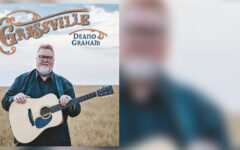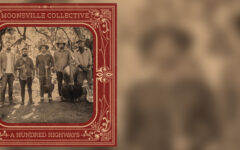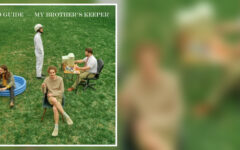
 Bluegrass fans may recognize the name Stacy Grubb from her work with the Clay Hess Band, including a popular tour several years ago, or perhaps from her husband’s bluegrass management and booking service, Jason Grubb Artist Management. Though Grubb’s first album, released in 2009, utilized some instruments from the bluegrass spectrum, it was geared more toward the alt-country/Americana crowd. Her follow-up, the recently released From the Barroom to the Steeple, is solidly acoustic with a contemporary bluegrass flavor. Produced by Hess, the album sets Grubb’s soft, Alison Krauss-esque vocals to instrumentation from a who’s who of stellar bluegrass pickers.
Bluegrass fans may recognize the name Stacy Grubb from her work with the Clay Hess Band, including a popular tour several years ago, or perhaps from her husband’s bluegrass management and booking service, Jason Grubb Artist Management. Though Grubb’s first album, released in 2009, utilized some instruments from the bluegrass spectrum, it was geared more toward the alt-country/Americana crowd. Her follow-up, the recently released From the Barroom to the Steeple, is solidly acoustic with a contemporary bluegrass flavor. Produced by Hess, the album sets Grubb’s soft, Alison Krauss-esque vocals to instrumentation from a who’s who of stellar bluegrass pickers.
Grubb has the same breathy-yet-strong quality to her voice as Krauss, and on several songs, she seems to be particularly channeling the acclaimed singer. One of those is Can’t Let You Go, which was written by John Pennell (perhaps best known in bluegrass circles for penning several of Krauss’s early hits, such as Every Time You Say Goodbye). The song is sung from the perspective of a woman who can’t get over someone, even though he has hurt her. It has a very gentle arrangement, with nice dobro work from Randy Kohrs and fine harmonies between Grubb and Hess. (Falling Like a) Leaf in a Summer Storm by Mark Simos (who also has written for Alison: Crazy Faith/Find My Way Back To Your Heart) has a similar feel, though it tells of the opposite end of the relationship spectrum – the singer is just beginning to let go and fall for someone new.
Grubb wrote seven of the album’s twelve tracks, including one (album closer Beautiful Girl) with her young son Elijah. Beautiful Girl is a sweet love song, particularly distinguished by Tim Crouch’s sweeping fiddle. Because You Love Me is another love song, this time with an acoustic country sound, in which Grubb sings of the power of seeing yourself the way the one who loves you does. All That Matters confronts a lover who doesn’t feel the same way about the singer as she does about him. Although the song has a gentle melody, it offers several stark truths about relationships as the singer comes to the realization that “sometimes something beautiful is only beautiful to me.”
Cold on the Ground is guided by Ron Block’s driving banjo. It’s a cleverly written number about the end of a relationship. Grubb wrote Straight Line about the mountains and coal mines of her native West Virginia. The song isn’t an ode to the state’s beauty, but a dark tale of the death and desperation that can come from living in a mining community. Spirit of the Mountains has a more positive view of Appalachia, speaking of the mountains’ – and their native music’s – ability to soothe. The song was written by Grubb’s father, Alan Johnston (whose songwriting credits include Del McCoury’s Sweet Appalachia), and also contributes the album’s title, which comes from a line in its chorus.
The album’s standout song is perhaps Six White Horses, written by Bobby Bond. This isn’t the Bill Monroe or Gillian Welch song, but the story of a soldier’s mother previously recorded by Waylon Jennings. It’s a poignant, well-written number that finds the singer – a blind woman – waiting at the window to find out if the sound she hears is her son knocking at the door or a funeral procession bringing him home. Grubb preserves the song’s original sound, but her acoustic treatment (compared to the late 1960s production of Jennings’s version) brings a new level of pain and longing to the song.
This is a fine bluegrass debut for Grubb. The musicianship here is excellent, coming from the likes of Hess (guitar, banjo, harmony vocals), Block (banjo), Kohrs (dobro), Crouch (fiddle), Irl Hees (bass, harmony vocals), Aaron Ramsey (mandolin), Nick Keen (mandolin), and Scott Vestal (banjo). Grubb’s vocals will be enjoyed by fans of contemporary bluegrass and acoustic country, particularly fans of Alison Krauss’s more recent work. The only downside to the album – and this is just a matter of personal taste – is that many of the songs here have a similar sound and tempo (a gentle, rolling melody with a bit of a wistful feel). A few more upbeat songs would have provided greater variety to the album’s sound. Overall, however, the album is enjoyable.
For more information on Stacy Grubb, visit her website at www.stacygrubb.com. Her new album can be purchased from various online music retailers.







